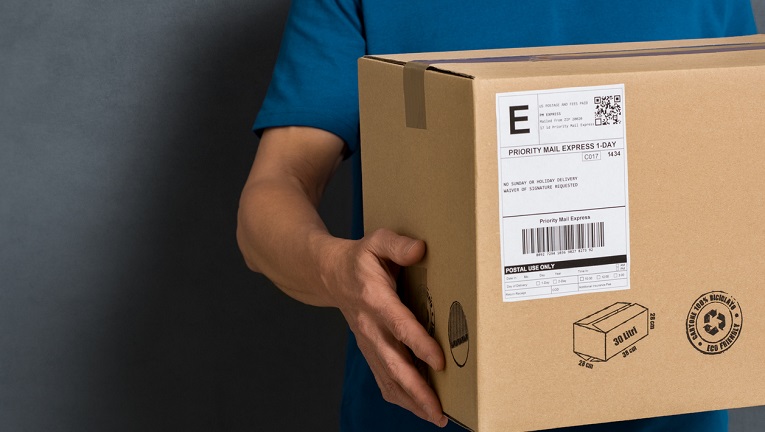What small businesses need to know about shipping parcels to the EU after the Brexit transition

Posted: Wed 9th Dec 2020
With less than a month to go until the end of the transition period for Britain's exit from the EU, there are new rules that businesses need to aware of when sending goods to the EU. That includes small businesses who send parcels using the Royal Mail and other parcel operators.
There has been some confusion about what these businesses need to do so this guide clarifies the changes.
Sending parcels through the post
Popping to the Post Office is a common activity among UK entrepreneurs as many small businesses use the standard postal system to send products to customers.
From 1 January 2021, if you sending goods to the European Union from Great Britain that are worth under £900 or less (£872 in Northern Ireland) via the post, you'll need to fill in a short customs declaration form and attach it to the parcel. You do not need a UK EORI number.
If the goods are valued at £901 or more (£873 in Northern Ireland), you will need to make a full customs declaration and you do need a UK EORI number.
EORI stands for Economic Operators Registration and Identification. It is a unique code used to track and register customs information in the EU.
You can apply for an EORI number via the government website. Note that it can take up to a week to get a number so you should apply as soon as possible if you think you need one.
Rules may be different in Northern Ireland. The government's Trader Support Service has been set up to provide free advice and training. Register here.
Sending goods using a courier and other parcel operators
If you use a courier or another parcel operator, they may handle the process for you. If so, you do not need a UK EORI number. Check with your parcel operator as soon as you can so you can be ready for exporting from 1 January 2021.
If they don't manage the process, you will need submit a full customs declaration (if appropriate) and you do need a UK EORI number.
Rules may be different in Northern Ireland. The government's Trader Support Service has been set up to provide free advice and training. Register here.
Carrying goods outside the UK yourself
If you carry goods to the EU yourself in a suitcase or small vehicle, they must be declared before you leave the UK. To make the declaration, you need a UK EORI number.
For goods worth £1,500 or more or goods classed as excise or restricted, you'll need to make a full customs declaration.
For all other goods you can make a declaration in person to a border force official at the port or make a declaration on the government's website up to five working days before departing.
Dealing with full customs declarations
Full customs declarations are complicated so if you are required to submit them from 1 January 2021 when sending goods to the EU, the government advises that you should use a specialist customs intermediary or agent.
The video below explains more.
If you decide to submit customs declarations yourself or you would like to better understand the process, you can apply for a £1,000 grant to cover the cost of training. There are also bigger grants available to cover recruitment, training and IT to help customs intermediaries increase their capacity to complete customs declarations.
More guidance on the grants is available here and you can apply for funding here.
Sending goods between Great Britain and Northern Ireland
The government has delayed changes to sending most goods between Great Britain and Northern Ireland until 31 March 2021.
If you are using an express carrier or Royal Mail to send excise goods or restricted and prohibited goods, you should inform the carrier or Royal Mail.
They will then tell you if they carry the type of goods you want to send and, if they do, they will ask you to provide any additional information that they need so that a declaration can be made. They will then ask you to provide them with any additional information that they need so that a declaration can be made.
If you are sending any other goods you can continue to do so as usual, with no new requirements. Full government guidance is here.
Details about changes from 1 April 2021 have not yet been published but if you move goods between Great Britain and Northern Ireland, you should sign up to the government's Trader Support Service for free advice and training. Register here.
Get business support right to your inbox
Subscribe to our newsletter to receive business tips, learn about new funding programmes, join upcoming events, take e-learning courses, and more.
Start your business journey today
Take the first step to successfully starting and growing your business.
Join for free
